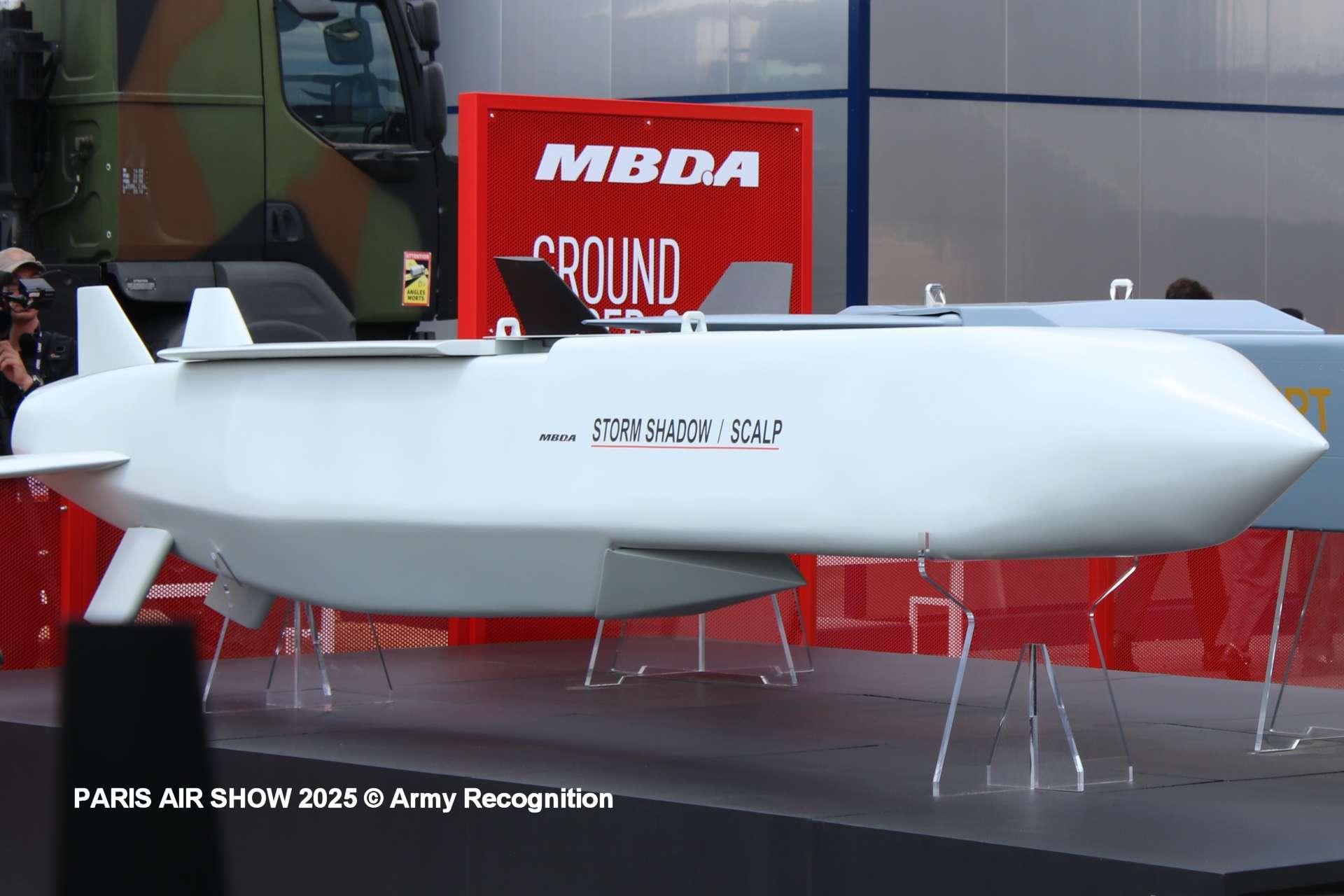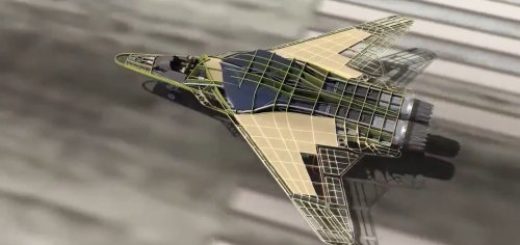Breaking News: New UK–France Pact Expands Next-Gen Storm Shadow Missiles and AI-Enhanced Precision Strike

{loadposition bannertop}
{loadposition sidebarpub}
On July 9, 2025, Britain and France unveiled a strengthened defence industrial accord designed to bolster Europe’s missile stockpiles and future-proof its deep-strike capabilities under the revitalised “Entente Industrielle.” This renewed commitment comes at a pivotal moment as both nations confront the enduring security implications of the Ukraine war and move to reinforce NATO’s deterrent edge with cutting-edge technology. Central to this fresh alignment is the dual focus on the proven Storm Shadow cruise missile and its next-generation successor, which will harness artificial intelligence to redefine precision strike across complex threat environments. The initiative, as reported by the UK Government Press Release, highlights how London and Paris intend to keep their deterrent credible and their industries competitive.Follow Army Recognition on Google News at this link
Britain and France are determined to translate battlefield lessons into next-generation capability, fusing proven stand-off strike power with AI-driven precision and resilience (Picture source: Army Recognition Group)
According to official UK Government statement, the deal underscores London and Paris’ resolve to maintain credible strike power while preserving the industrial backbone that safeguards Europe’s strategic autonomy. The Storm Shadow missile, which has played a significant role on the Ukrainian battlefield, exemplifies the urgent need for adaptable, long-range munitions capable of penetrating sophisticated air defence systems. Drawing on lessons from Ukraine’s extensive use of Western stand-off weapons, the new programme will boost immediate stockpiles while funding an advanced replacement featuring upgraded propulsion, stealth features and AI-enabled multi-mode guidance.
This next-generation system aims to tackle the anti-access/area denial (A2/AD) challenges that have emerged starkly in Ukraine, where Russian layered air defences have tested the limits of legacy cruise missiles. By embedding AI and networked targeting, the Franco-British design will enable dynamic in-flight re-tasking, cooperative swarm tactics with drones, and enhanced survivability in contested air and maritime domains. Such capabilities mark a decisive technological leap and reflect a shared recognition that European strike power must evolve rapidly to remain relevant.
Strategically, this expanded missile cooperation demonstrates how London and Paris intend to uphold Europe’s deterrence posture independently, while remaining fully interoperable with NATO’s evolving operational frameworks. Their status as Europe’s only nuclear powers lends added weight to this effort, which dovetails with broader initiatives like the Combined Joint Expeditionary Force and the UK-led DIAMOND programme for integrated air and missile defence. By deepening coordination in space, cyber, and AI, the two nations are adapting their combined force structure to confront multi-domain threats more cohesively.
Financially, the additional Storm Shadow orders and new missile development inject steady funding into MBDA’s supply chain, locking in vital contracts at a time when many Western nations are grappling with defence production bottlenecks. While specific contract values remain undisclosed, the continuity of orders guarantees predictable revenue streams for prime contractors and sub-suppliers, reinforcing Europe’s position in the global missile sector. Previous Storm Shadow contracts have supported decades of cooperation, with this new commitment marking the clearest signal yet that Britain and France will modernise together rather than risk fragmented national programmes.
In the wake of the Ukraine conflict, the new Storm Shadow programme sends a clear signal: Britain and France are determined to translate battlefield lessons into next-generation capability, fusing proven stand-off strike power with AI-driven precision and resilience. As European security continues to face its most severe test in decades, the Entente Industrielle ensures that when deterrence must be enforced, Europe’s frontline strike systems remain ready, relevant, and unchallenged.

{loadposition bannertop}
{loadposition sidebarpub}
On July 9, 2025, Britain and France unveiled a strengthened defence industrial accord designed to bolster Europe’s missile stockpiles and future-proof its deep-strike capabilities under the revitalised “Entente Industrielle.” This renewed commitment comes at a pivotal moment as both nations confront the enduring security implications of the Ukraine war and move to reinforce NATO’s deterrent edge with cutting-edge technology. Central to this fresh alignment is the dual focus on the proven Storm Shadow cruise missile and its next-generation successor, which will harness artificial intelligence to redefine precision strike across complex threat environments. The initiative, as reported by the UK Government Press Release, highlights how London and Paris intend to keep their deterrent credible and their industries competitive.
Britain and France are determined to translate battlefield lessons into next-generation capability, fusing proven stand-off strike power with AI-driven precision and resilience (Picture source: Army Recognition Group)
According to official UK Government statement, the deal underscores London and Paris’ resolve to maintain credible strike power while preserving the industrial backbone that safeguards Europe’s strategic autonomy. The Storm Shadow missile, which has played a significant role on the Ukrainian battlefield, exemplifies the urgent need for adaptable, long-range munitions capable of penetrating sophisticated air defence systems. Drawing on lessons from Ukraine’s extensive use of Western stand-off weapons, the new programme will boost immediate stockpiles while funding an advanced replacement featuring upgraded propulsion, stealth features and AI-enabled multi-mode guidance.
This next-generation system aims to tackle the anti-access/area denial (A2/AD) challenges that have emerged starkly in Ukraine, where Russian layered air defences have tested the limits of legacy cruise missiles. By embedding AI and networked targeting, the Franco-British design will enable dynamic in-flight re-tasking, cooperative swarm tactics with drones, and enhanced survivability in contested air and maritime domains. Such capabilities mark a decisive technological leap and reflect a shared recognition that European strike power must evolve rapidly to remain relevant.
Strategically, this expanded missile cooperation demonstrates how London and Paris intend to uphold Europe’s deterrence posture independently, while remaining fully interoperable with NATO’s evolving operational frameworks. Their status as Europe’s only nuclear powers lends added weight to this effort, which dovetails with broader initiatives like the Combined Joint Expeditionary Force and the UK-led DIAMOND programme for integrated air and missile defence. By deepening coordination in space, cyber, and AI, the two nations are adapting their combined force structure to confront multi-domain threats more cohesively.
Financially, the additional Storm Shadow orders and new missile development inject steady funding into MBDA’s supply chain, locking in vital contracts at a time when many Western nations are grappling with defence production bottlenecks. While specific contract values remain undisclosed, the continuity of orders guarantees predictable revenue streams for prime contractors and sub-suppliers, reinforcing Europe’s position in the global missile sector. Previous Storm Shadow contracts have supported decades of cooperation, with this new commitment marking the clearest signal yet that Britain and France will modernise together rather than risk fragmented national programmes.
In the wake of the Ukraine conflict, the new Storm Shadow programme sends a clear signal: Britain and France are determined to translate battlefield lessons into next-generation capability, fusing proven stand-off strike power with AI-driven precision and resilience. As European security continues to face its most severe test in decades, the Entente Industrielle ensures that when deterrence must be enforced, Europe’s frontline strike systems remain ready, relevant, and unchallenged.





